- TOPICS
- How English opened the world to this student
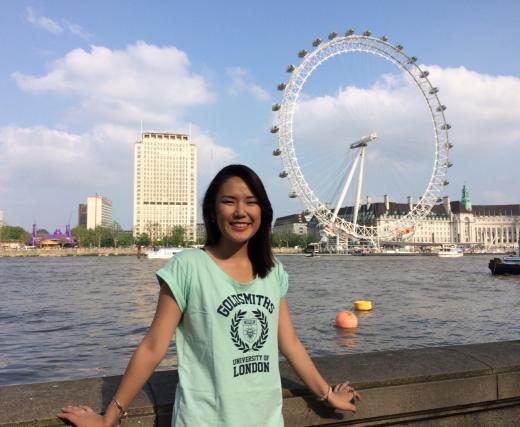
2018/07/30
How English opened the world to this student
Estela Hitomi Sato Shiratori is a student from São Paulo, Brazil. Through her studies in English, she fell in love with the language. Her passion for the language and the dream to become a global citizen, led her to Soka University’s Faculty of International Liberal Arts. Through her experiences of study abroad and Soka University Festival (Soudaisai), she decided to pursue graduate school and possibly Ph.D. Learning English has enabled this student to challenge herself to become a global leader.
First time studying English?
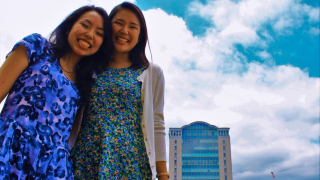
In Brazil, English is a secondary language. In most schools, there may not be much of an emphasis on learning English, so language classes are usually held only once a week. From the day I started learning English, I loved learning the language. Seeing the passion that I had for the language, my parents started sending me to an English language school where I went twice a week, for 3-4 years. It got to the point where I started attending summer and winter intensive programs (1 semester in 1 month). When I was eight, I read a book by the Founder of Soka University, Daisaku Ikeda, where he encouraged the youth to “become global citizens”. Through this encouragement, I thought one of the ways I could become a global citizen was to learn English.
Why Soka University?
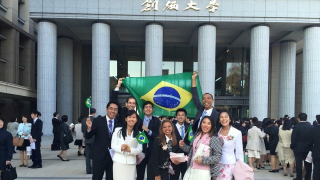
I am a graduate of the Soka School of Brazil, and I studied there from Elementary to Junior High School. When I was eight years old and a student at Soka School of Brazil, my dream was to become a student and attend Soka University in Japan. Once I grew older I left this dream aside and started considering to study for my undergraduate degree in Brazil. While I was still confused about which bachelor’s degree I should apply to, I had the opportunity to visit Japan in 2013. At that time, I visited the Soka University campus and it was there that I promptly remembered the dream that I had made many years earlier. The opening of the new Faculty of International Liberal Arts became the perfect opportunity for me to go to Soka University.
Cultural Differences?
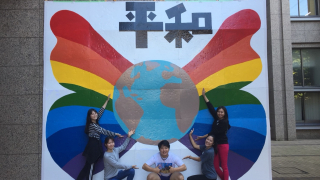
In Brazil, when you greet people, even for the first time, we hug and kiss on the cheek. On the other hand, in Japan, people greet from a distance and usually bow. So this is a cross-cultural challenge that most Brazilians face when we first come to Japan. In this way, taking the cross-cultural understandings class in FILA and getting to learn about different cultures helped both international and domestic students to adapt and respect cultural differences. By experiencing different cultures in an internationalized setting, I was able to open myself to learn Japanese culture as well as share my Brazilian culture.
When you started in FILA what were the challenges that you never expected?
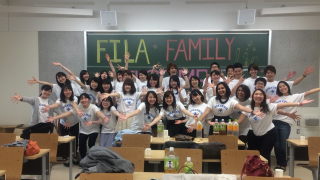
Until Junior High School I was studying at Soka School of Brazil, in High School, I went to a public school. The public education in Brazil was very different and challenging at the time. In high school, there were some fields I did not study because of the shortage of teachers and resources, such as tool and textbooks for all the students. Thus, when I entered FILA, the classes were challenging because I lacked some basic knowledge from high school. When I would write an essay on a specific topic, I had to do some extra research in order to make the essay coherent. As of English classes, although I studied English enough to the point I could keep up with the classes, university-level work was more challenging than I expected. Different from reality back in Brazil, I started to speak, write, and listen to English for the majority of the time.
Your experience in London?
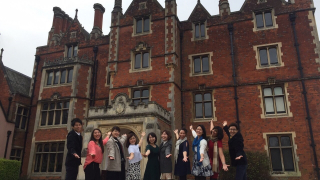
From September 2015 to May 2016, I went to study abroad in London. Studying there was fun, yet challenging because I had the chance to be more independent in regards of my daily routine and finances. Also, the British accent was difficult for me to understand at first; even inside the UK, there were different kinds of accents, however, eventually I got used to it. When I was there, I saw that London preserves history in the architecture and museums, while incorporating the modern world through skyscrapers along the Thames River. There is also great cultural diversity in London, so I learned a lot about other cultures as most of my friends had different ethnic backgrounds. Moreover, I was provided with exciting opportunities such as becoming Student Ambassador of the University of my study abroad site. Through those opportunities, I was able to meet different people, while sharing Soka education values.
First time experiencing Soudaisai
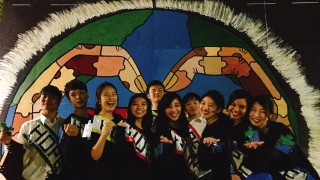
The expectations were definitely high. In my first year, I was studying abroad in London and I heard many stories of Soka University Festival and how the founder visited Soka University campus the on cleaning day. I really wanted to be there with all the other students to show the founder our appreciation and our growth. I did not go home after coming back from study abroad, so I discussed with the international students committee, showing them that I was available to help in any kind of way for the preparation of the festival. At that time, I did not know what Soka University Festival meant and I was put in the Commemorative Festival (Kifes) committee. Commemorative Festival committee is in charge of creating a dance or skit to open the festival. Joining the Commemorative Festival committee was an opportunity to repay my gratitude to the founder.
Were there opportunities to learn Japanese?
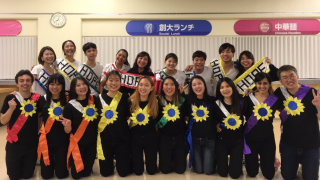
During the preparations for the Soka University Festival the main language used was Japanese because most of the international students come here to learn Japanese. All the meetings and discussions were held in Japanese. During the meetings and discussion, the friends of the committee would share what was going on, and I would learn Japanese on the fly.
Throughout the 4 years, where was the biggest growth in yourself?
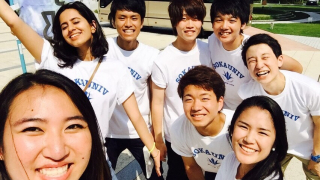
My greatest growth has been internal. There are different situations that factor into my personal growth, such as the emotional stance of being with my classmates and professors from all over the world. Also, all the memories and struggles of preparing for Soka University Festival. There is one class that has had a huge impact on my growth, which is the Leadership Seminar. In Leadership Seminar I, II, III we learn leadership theories and unveil the leader that exists inside us. By aligning the mind and the heart, and having sincere dialogues with peers, we open our minds and take actions to make the invisible, visible.
What do you want to do after you graduate Soka?
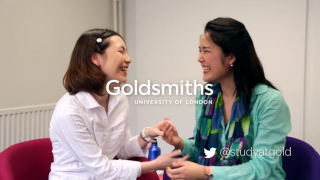
After I graduate from Soka University, I want to go to graduate school and Ph.D. so I can deepen my research on how to improve learning experience to promote youth development. My long-term dream is that I want to repay what I have learned in Brazilian society. When I see myself enjoying all the opportunities that I have been having abroad, I look back at home and my friends, and I always wonder how can I help Brazilian society to overcome their situation. I sincerely want to bring back what I am experiencing now to the people of Brazil. Currently, my main research focus is on enhancing the educational experience to empower youth to change their communities.
How will FILA change Soka University?
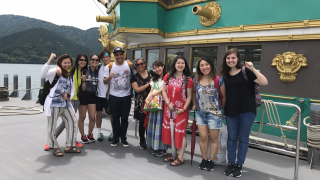
FILA has been changing the culture of Soka University to be one that is more open to cultural differences. This contribution has been helping Soka University to become a place where a new culture can be created – one that values the diversity of others.
Message
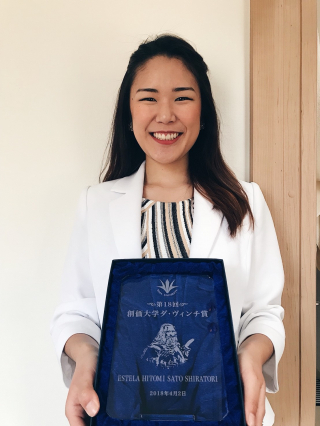
People may think it’s funny, “why are you studying an English-medium undergraduate course in Japan?” Even though a new environment with a totally different culture might be a little intimidating, Soka University and Japanese culture itself are very welcoming. You feel the openness to learn and grow from each other, which is essential for a quality learning experience.
PROFILE
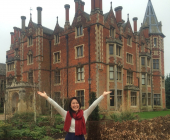
ESTELA HITOMI SATO SHIRATORI
Year and Major:
4th-year FILA
Hobbies:
Painting with watercolors, Instagramming, Netflix
Favorite Book:
“Creative Social Change: Leadership for a Healthy World”, Sophia’s World by Jostein Gaarder
Favorite Place on Campus:
Library or any place outside
ページ公開日:2018/07/30